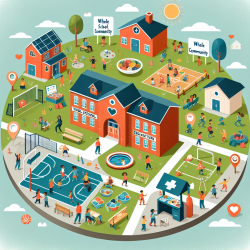Introduction
Adolescence is a critical period for social development, where peer relationships play a significant role in shaping one's social skills and emotional well-being. A recent study titled "Cross-sectional and longitudinal associations between arts engagement, loneliness, and social support in adolescence" explores the impact of arts engagement on adolescents' social support systems.
The Role of Arts Engagement
The study involved 11,780 adolescents aged 11-21 years and examined their participation in school-based arts activities such as band, book club, chorus, choir, cheerleading, dance, drama club, newspaper, and orchestra. The researchers aimed to determine whether these activities were associated with reduced loneliness and enhanced social support.
Key Findings
Interestingly, the study found no significant association between arts engagement and reduced loneliness. However, engaging in one or more arts activities was linked to a 28% higher likelihood of reporting high social support from peers one year later. This suggests that arts activities may foster environments conducive to building friendships and a sense of community.
Implications for Practitioners
For practitioners working with adolescents, these findings highlight the potential of arts programs to enhance social support networks. While the study did not find a direct link to reducing loneliness, the increased social support could indirectly mitigate feelings of isolation. Practitioners should consider integrating arts programs into their interventions to help adolescents build stronger peer connections.
Encouraging Further Research
The study underscores the need for further research to explore the nuances of how different types of arts engagement impact social outcomes. Practitioners are encouraged to participate in or initiate studies that delve deeper into the specific mechanisms through which arts activities influence social support and loneliness.
Conclusion
While arts engagement may not directly reduce loneliness, it plays a crucial role in enhancing social support among adolescents. By participating in arts activities, adolescents can develop meaningful peer relationships, which are essential for their overall well-being. Practitioners should leverage these findings to foster environments that support social connections through the arts.
To read the original research paper, please follow this link: Cross-sectional and longitudinal associations between arts engagement, loneliness, and social support in adolescence.










